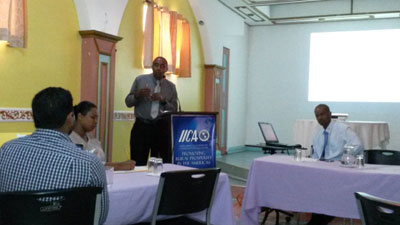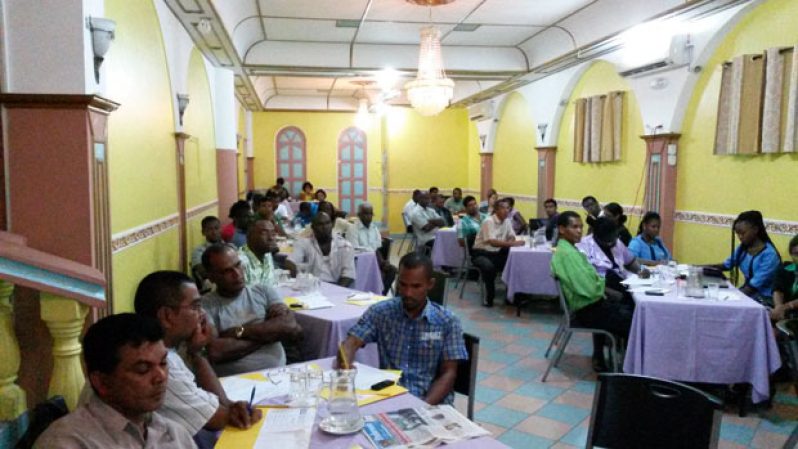MINISTER of Agriculture, Dr. Leslie Ramsammy said Tuesday that cost factors and cost of production (COP) exercises are critical elements for the development of the sector as a business.

He said generally in Guyana, agriculture does not have a history of being seen as a business, but the time has come for all and sundry to recognise it for what it is.
“It is a business and the people engaged in agriculture as a commercial activity are entrepreneurs,” he posited.
The minister said farmers today who produce for the commercial market are entrepreneurs, he reiterated, underlining that fact.
He added: “Once we accept this fact, then we must also accept that cost factors and the cost of production exercise is a critical component of the agriculture business whether we are rice farmers, sugar cane farmers, in cash crops, or in aquaculture. Whatever we do, we must be clear on the cost of production because we are doing this as a business and we are doing it to generate a profit like any other business.”
Ramsammy made the remarks while declaring open a one-day COP workshop hosted by the Guyana Office of the Inter-American Institute for Cooperation on Agriculture (IICA) at the Regency Hotel in Georgetown.
The main resource person at the forum was Mr. Edric Harry, Policy Analyst and Planning Specialist from the IICA Office in Trinidad and Tobago.
Included producers
The participants included producers of both crops and livestock, representatives of the Ministry of Agriculture and research and extension officials who provide advisory services to farmers and agro-processors.
The objective of the seminar was to provide a framework for improving record keeping, farm management and policy and investment decision making in the agriculture sector.
Those taking part were welcomed by IICA Representative in Guyana Mr. Wilmot Garnett, who said the event was indicative of IICA’s commitment to empower them with the knowledge essential for profit-driven agriculture.
He said that it was further proof of IICA’s commitment, in terms of horizontal cooperation and partnerships with relevant stakeholders in the agriculture sector.
In his opening remarks, Minister Ramsammy emphasised that the purpose was to enable agricultural producers to recognise the cost factors in establishing their business, so that a margin of profit can be surmised.
“When we have routine cost-of-production modules, it will help us, as individuals, groups, companies and as a country to measure the impact of technology, better farming techniques of introducing efficiency into our business,” he posited.
He added: “This workshop is not meant to be a one-stop event; it has to be a continuing exercise.”
COP models
Ramsammy urged the participants to work with IICA and other partners to develop COP models that can be introduced as software programmes for farming entrepreneurs and their families.
He said:”This is one example of innovation in agriculture. I would hope that, not long from now, we can say this is our COP model for rice; this is our COP model for the production of pumpkins, for butternut squash.”
He challenged those involved to work along with IICA to stage a conference on COP, where results on how the models work are presented, so that Guyanese producers of both crops and livestock can benefit.
Those in attendance received information on the COP model, its benefits and the data requirements.
They also benefited from a demonstration on the use of the model on a crop and a livestock farming activity and participated in group excercises in which they input data, simulated proposed policy impacts and discussed and recommended what should be done as follow-up actions.
Sustainable Rural Development Specialist in IICA’s Guyana Office, Mr. Arnold De Mendonca, who chaired the sessions, said that a pilot project at a farm location was one possible follow-up action that will be considered to further popularise the COP concept.
(by Clifford Stanley)



.jpg)








